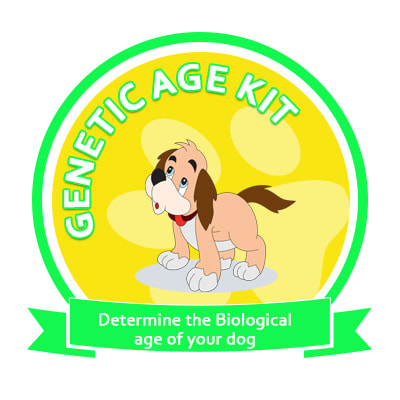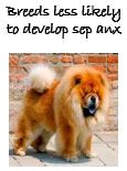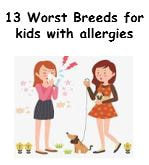What Does Hypoallergenic Mean Regarding Dogs?
By Jane Williams
By Jane Williams

For many people, the lure of owning a dog is kept at bay only because they suffer unpleasant allergic reactions when near a cuddly canine. Hypoallergenic dog breeds are supposedly safe for allergy sufferers, and allow them the pleasure of puppy parenthood.
Allergy Triggers
Allergies occur when your immune system goes into hyperactive overdrive over something harmless. Dog allergies focus on a protein found in the pooch's saliva and skin cells, which is found in abundant supply in the animal's dander. This dander, usually in the form of shed skin flakes, sticks to the dog's hair. When the pup shakes, it sends loose, dead hair afloat. It's this floating allergen delivery system that sends you into a mess of sneezing, watery eyes and itching.
The Hype of Hypoallergenic
Hypoallergenic dogs are the answer to dog-wanting allergy sufferers everywhere. These breeds are low-shedding, which lessens the amount of hair tossed into the environment to aggravate your allergies. They also tend to produce less dander, which is what your immune system goes into red alert over. Breeds such as poodles, Maltese and bichon frise don't lose the amount of hair other breeds such as the collie do, which can greatly reduce your allergy reactions.
Allergy Triggers
Allergies occur when your immune system goes into hyperactive overdrive over something harmless. Dog allergies focus on a protein found in the pooch's saliva and skin cells, which is found in abundant supply in the animal's dander. This dander, usually in the form of shed skin flakes, sticks to the dog's hair. When the pup shakes, it sends loose, dead hair afloat. It's this floating allergen delivery system that sends you into a mess of sneezing, watery eyes and itching.
The Hype of Hypoallergenic
Hypoallergenic dogs are the answer to dog-wanting allergy sufferers everywhere. These breeds are low-shedding, which lessens the amount of hair tossed into the environment to aggravate your allergies. They also tend to produce less dander, which is what your immune system goes into red alert over. Breeds such as poodles, Maltese and bichon frise don't lose the amount of hair other breeds such as the collie do, which can greatly reduce your allergy reactions.
Controversy
The old adage “If it's too good to be true, it usually is” appears often when discussing hypoallergenic dogs, as some organizations think the whole notion of a non-allergy-causing dog is bogus. According to "Time" magazine, the Henry Ford Hospital released a study in 2011 that essentially found no real difference between the amount of allergens produced by so-called hypoallergenic dogs and regular run-of-the-mill pooches. The study showed no reduction in allergens to support the claim that these breeds were safer for those who suffered from allergies than any other breed.
The old adage “If it's too good to be true, it usually is” appears often when discussing hypoallergenic dogs, as some organizations think the whole notion of a non-allergy-causing dog is bogus. According to "Time" magazine, the Henry Ford Hospital released a study in 2011 that essentially found no real difference between the amount of allergens produced by so-called hypoallergenic dogs and regular run-of-the-mill pooches. The study showed no reduction in allergens to support the claim that these breeds were safer for those who suffered from allergies than any other breed.
Bottom Line
Although some organizations and researchers poo-poo the idea of a dog safe for allergies, many allergy sufferers have successfully achieved dog ownership by seeking out one of these hypoallergenic breeds. Each individual dog -- and allergy-suffering potential owner -- is different, so spend some time with your chosen breed before taking the plunge. Your allergies may still go haywire with a poodle, but offer nary a sniffle with a bichon frise. Do your research, find a reputable breeder and take your time in your decision.
Although some organizations and researchers poo-poo the idea of a dog safe for allergies, many allergy sufferers have successfully achieved dog ownership by seeking out one of these hypoallergenic breeds. Each individual dog -- and allergy-suffering potential owner -- is different, so spend some time with your chosen breed before taking the plunge. Your allergies may still go haywire with a poodle, but offer nary a sniffle with a bichon frise. Do your research, find a reputable breeder and take your time in your decision.
|
All dogs can develop sep anx, however, some breeds are more prone to it than others, even cross breeds.
|
Just because your kiddos (or yourself) have allergies to pets, that doesn't mean your home must be a dog-free zone. But there are certain dog breeds you should avoid — particularly those that shed and drool excessively.
|
Just like us humans, having something that is terribly itchy and can drive us nuts, so too can it affect a dog!
|







